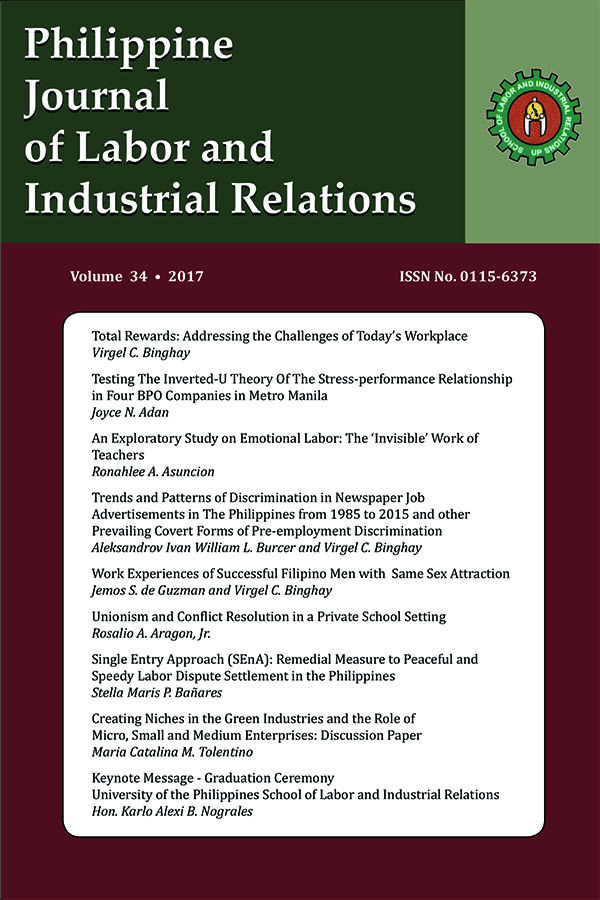Unionism and Conflict Resolution in a Private School Setting
Abstract
This paper compares the faculty and non-academic personnel belonging to two different unions in terms of management or resolution of conflict in a private school in downtown Manila, Philippines, and in the process, explores the role of the union as a collective interest group in conflict resolution. The study found that there is a significant relationship between the union members’ position in school (whether academic or non-academic) and their attitudes towards unionism and conflict resolution in school. Respondents who are part of the non-academic union are more involved with the union in solving their conflicts than their academic counterparts. The result of the study does not, however, mean that faculty unions are no longer relevant as there are studies pointing to the positive relationship between unionization and faculty governance and participation in university decision-making (Cameron, 1982).
Published
2021-06-28
How to Cite
ARAGON, Rosalio, Jr. A..
Unionism and Conflict Resolution in a Private School Setting.
Philippine Journal of Labor and Industrial Relations, [S.l.], v. 34, june 2021.
ISSN 0115-6373. Available at: <https://journals.upd.edu.ph/index.php/pjlir/article/view/7707>. Date accessed: 31 aug. 2025.
Section
Articles


